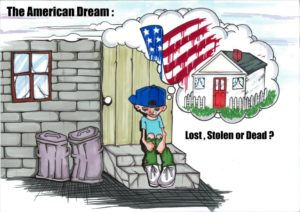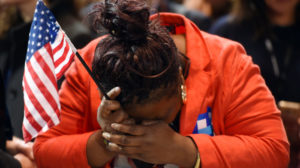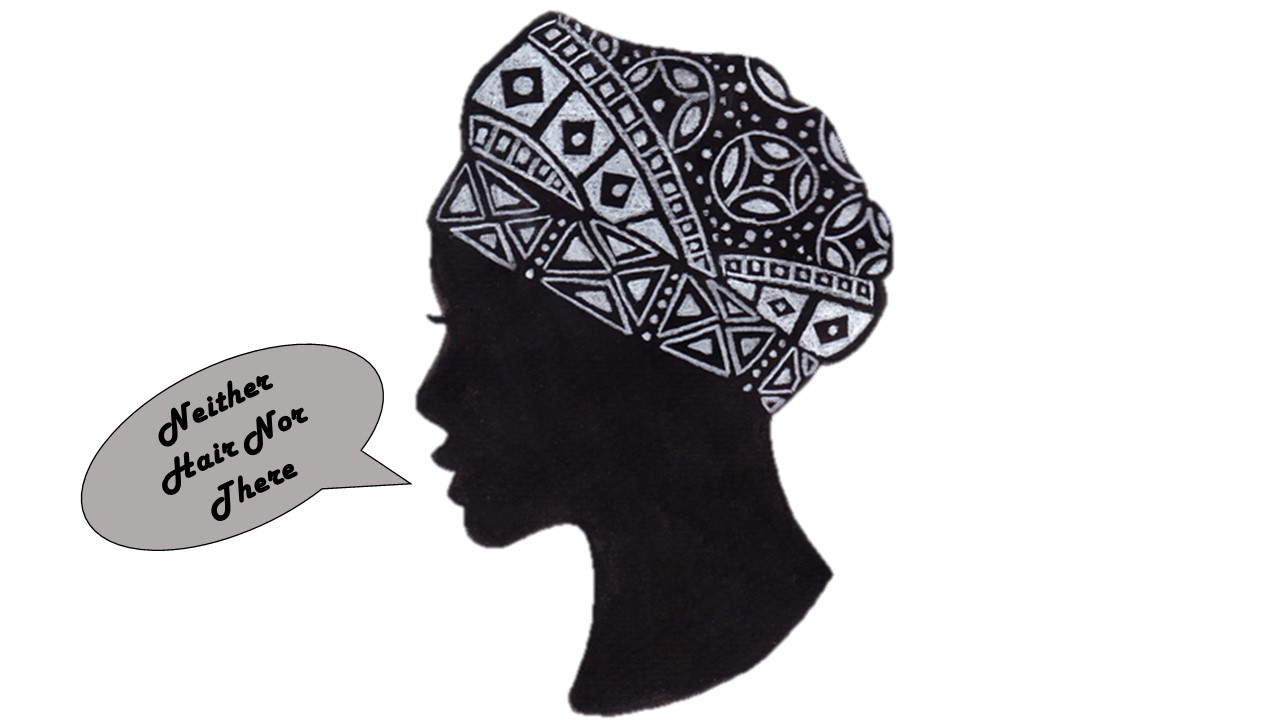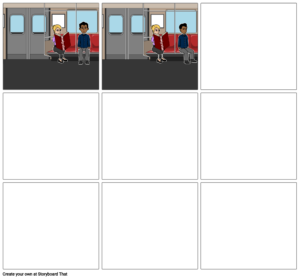Taylor Wilkins Benny Hegbe
The social issue we decided to portray in our project is discrimination of immigrants. Discrimination is defined as “prejudiced or prejudicial outlook, action or treatment” according to Merriam Webster dictionary, meaning one is viewed or treated differently based on preconceived values or ideologies. In society today unfortunately, discrimination is such a prevalent issue because there is a myriad of cultures, values, and beliefs in existence. Typically, people form biased opinions and beliefs based on their ignorance of these cultures, values and beliefs. Discrimination perpetuates the racial divide amongst a group of people when in reality people of all races, ages, genders, and backgrounds must come together in order to fight the issues of the world.
According to NPR, those who appear to be immigrants, specifically Hispanic people, report 4 out of 10 have been discriminated against. In another survey, according to NPR 92% of black people say they have been discriminated against. As one can see discrimination is very high in the United States which is why this issue needs to be brought to the attention of others.
In Americanah by Chimamanda Ngozi Adiche the main character, Ifemulu faces discrimination when she visits a black hair salon. Ifemulu visits a hair salon in order to get her hair braided and while at the salon there are numerous snooty comments made by the ladies in the salon even though they are also African, however they ate from a different country. One example being when they ask Ifemulu if she knew a famous Nigerian actress just because they are from the same country. Even after Ifemulu leaves the book states, “They would, she was sure, talk about her after she left … They would laugh with derision, but only a mild derision, because she was still their African sister, even if she had briefly lost her way” (Adiche 126). The women in the salon are clearly treating her different even though technically they are still the same race. Another experience of discrimination in the book was when Emenike, Obinze’s friend, tries to hail a cab in London. He tells the story of a time where the cab driver turns his active light off before passing Emenike and then turns the active light back on after passing him(Adiche 201). In this instance Emenike was pointing out the evident discrimination he had faced from the cab driver due to his ethnicity. Also the book shows another instance of discrimination when Ifemulu and Curt are at the farmer’s market. A black man walks by and mutters how could Curt be with her when it looks as if she’s from the jungle(Adiche 157). All three of these accounts display discrimination on various levels throughout the book.
We decided to choose cinematic virtual reality as our medium to enforce the prevalence of our issue. As we discussed in class our society is becoming less empathetic and virtual reality is a proven tool to help stop this issue. We believe if our audience actually experiences discrimination first hand via a variety of scenes from Americanah, especially those who because of demographic issues may have never or will never experience it, they will be prone to join the fight against discrimination in their daily lives. Virtual Reality is a great way for our audience to become uncomfortable enough to join the fight against discrimination of those who are different from them. Specifically in our VR project we will incorporate three different scenes to display discrimination in different ways. All scenes are adaptations from the book Americanah. We will feature the above described scene where Ifemulu faces discrimination in the hair salon, the scene where Emenike tells the story of the time he couldn’t catch a cab, and when Ifemelu are in the farmer’s market and a man tells her she looks like she’s from the jungle. Our VR experience will be set up that whoever is viewing the story is being discriminated against and it will be as if each story is occurring from their POV.
Sources:
Adichie, Chimamanda Ngozi. Americanah. 2013.
Bates, Karen Grigsby. “92 Percent Of African-Americans Say Black Americans Face Discrimination Today.” NPR, NPR, 24 Oct. 2017, www.npr.org/2017/10/24/559889541/92-percent-of-african-americans-say-black-americans-face-discrimination-today.
Florido, Adrian. “There’s An Immigration Gap In How Latinos Perceive Discrimination.” NPR, NPR, 5 Nov. 2017, www.npr.org/sections/codeswitch/2017/11/05/561876519/theres-an-immigration-gap-in-how-latinos-perceive-discrimination.



